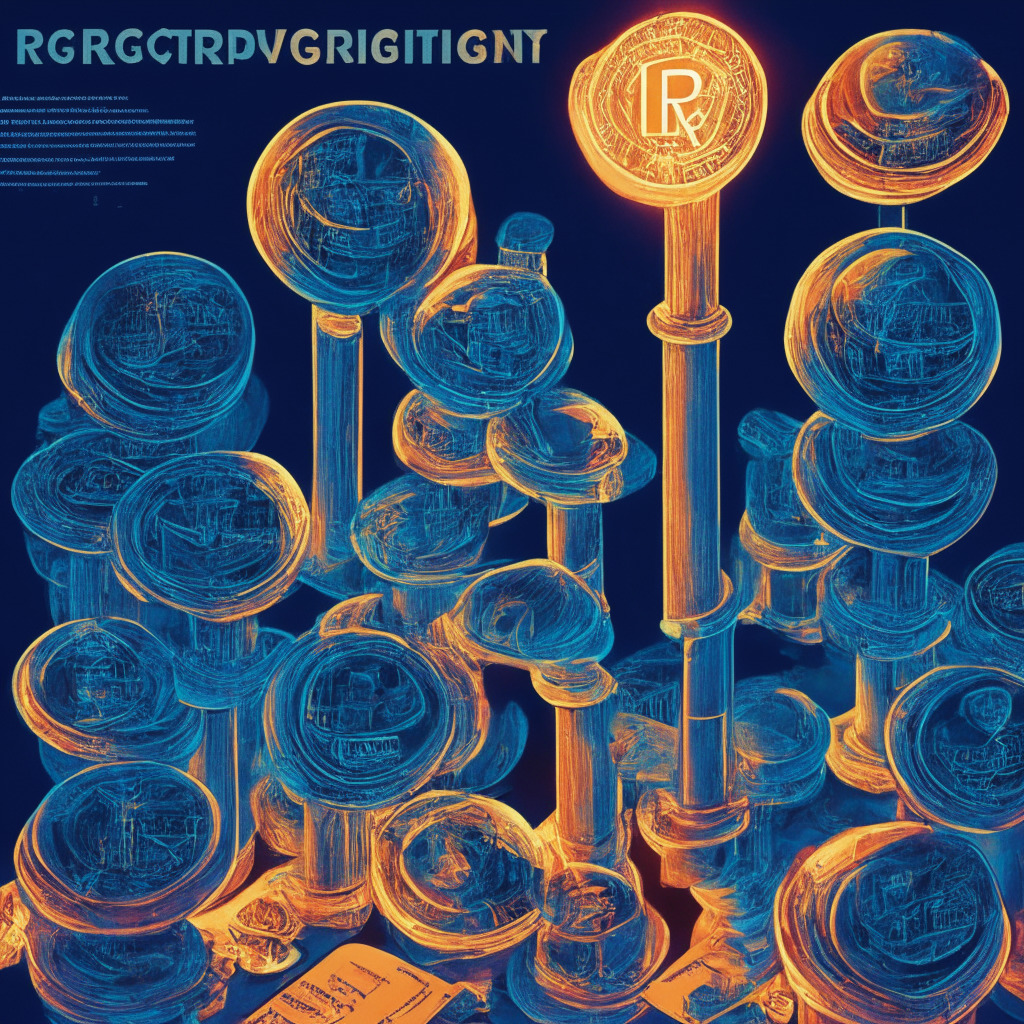As the crypto arena experiences remarkable development, the rise of regulatory obligations marks a concurrent evolution. David Hirsch at the helm of the SEC’s Crypto Assets and Cyber Unit, underscores pressing matters for the crypto sphere outlining an impending increase in charges against exchanges and DeFi projects suspected of infringing securities laws. With major platforms such as Coinbase and Binance already in the crosshairs, the industry stands on its toes. But given the substantial expansion of crypto and the SEC’s limited resources, a pressing question arises: where should the line be drawn?
A seasoned crypto expert, Brandon Zemp takes us on a deep dive into these regulatory complexities. David Hirsch’s stern warning regarding securities law violations reiterates concerns similar to those around established players like Coinbase and Binance. Zemp believes that the regulatory situation for crypto exchanges and DeFi projects, based on the SEC’s stance, places the industry in a moderately comfortable zone, but calls for caution and strategic action.
He points out that major players like Coinbase and Binance are particularly at risk because of their substantial financial resources and political connections, potentially turning them into main targets for the SEC. However, smaller exchanges and platforms might not have the means to withstand potential multi-million dollar fine levels, evoking what happened to Kraken and Bittrex.
Regulatory pressures shape the evolution of industries and have the potential to heavily influence the trajectory of DeFi projects which champion decentralization. Zemp holds a balanced view, noting that a properly regulated environment fosters a healthier market and developer ecosystem, leading to fewer scams and frauds. Yet, at the same time, he acknowledges that the inherently decentralized nature of these projects makes them less controllable, thus sparking further innovation in response to regulatory challenges.
Hirsch asserts that merely adding a ‘DeFi’ label won’t exempt projects from regulatory scrutiny. In response, Zemp suggests DeFi projects to operate within their legal jurisdictions and collaborate with government agencies like the SEC.
The aggressive stance from the SEC might result in daunting implications for the future of exchanges and DeFi projects. Zemp sees a negative potential outcome as a disadvantageous environment for developers in the United States, which could lead to talent drain and sparse investment where the best companies exit the United States.
However, alternatives such as the SEC’s operation being restrained by the Courts (as witnessed with Ripple v. SEC and Grayscale v. SEC) and its revamp by Congress to better reflect the digital age, are hopeful indications. He underscores that while there might be negative consequences, DeFi is likely to continue its evolution, since decentralization is a fundamental characteristic that cannot be halted.
With crypto platforms increasingly choosing court battles over settlements, Zemp believes that this signifies the maturing and resilience of the industry. He encourages the pioneers in this realm to focus on problem-solving, aiding people, and mending the world, emphasizing that prosperity will naturally follow hard work.
In conclusion, David Hirsch’s prospect of increased focus on crypto exchanges and DeFi projects suspected of breaching securities laws indicates a challenging road ahead. Yet, the industry’s resilience and potential cannot be underestimated, as indicated by insightful perspectives from Brandon Zemp. The crypto world, in its multifaceted dynamism, continues to push boundaries, build resilience, and explore new possibilities, keeping stakeholders hopeful and engaged.
Source: Cryptonews




